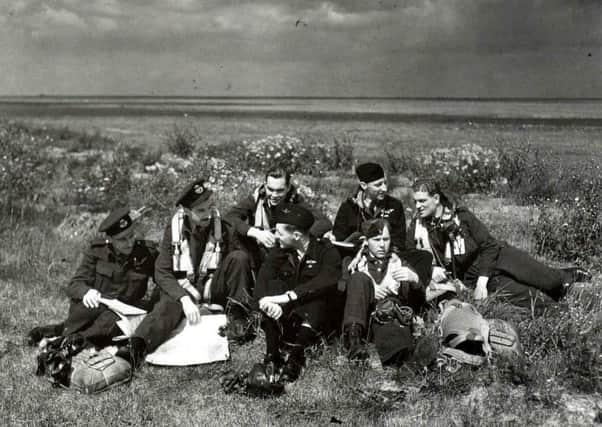Guest Column: Gainsborough's part in the Dambusters' story


The exhibition explores the story of the Dambusters raid, codenamed ‘Operation Chastise’, the bomber crew, the role of the Naafi, local airfields such as RAF Scampton and the use of the Rose turret through displays and objects of memorabilia.
The Rose rear turret was made and designed by Rose Brothers of Gainsborough and this was a revolutionary design and was fitted to a large number of ME442 Lancaster type BIII.
Advertisement
Hide AdAdvertisement
Hide AdThe exhibition also tells the story of Flight Lieutenant ‘Johnny’ Johnson DFC who was one of the original Dambusters and Gainsborough’s best known and loved war heroes.
Johnson was born in Lincoln in 1912 and lived in Lead Road in Gainsborough.
He joined the RAF in 1940 and in 1943 he was part of the squadron at Scampton who attacked the Eder Dam aimed at the industries of the Ruhr Valley.
On one raid, his aeroplane crashed and the exhibition details the story of how the underground in different countries helped him to escape.
Advertisement
Hide AdAdvertisement
Hide AdJohnny also attended the opening of the Gainsborough Heritage Centre in 1995.
There are a few tickets left for the 1940s-themed Dambusters Ball at the Weston Rooms on Hickman Street on Saturday, May 19.
Doors will open at 7pm for refreshments to be served at 7.30pm and there will be dress and dance prizes so don’t miss out.
The centre is also hosting a talk on Wednesday, May 23 entitled ‘Thomas Cooper - Victorian Gainsborough’s radical writer’ to be given by Adrian Gray at Gainsborough House on Parnell Street.
Advertisement
Hide AdAdvertisement
Hide AdCooper rose from obscurity in Gainsborough to be a radical journalist, poet, Chartist and prisoner, but he was also a great preacher worthy of greater fame. He began life in Leicester and was apprenticed to a shoemaker however, he decided to educate himself and at 23 he became a schoolmaster.
In 1828, Cooper opened a school in Gainsborough and preached in the villages around Gainsborough.
However, due to divisions between himself and his Wesleyan Methodist superiors, Cooper embarked on a new future.
The talk will begin promptly at 7.30pm and entry will be £4.
Further details are at www.gainsboroughheritage.co.uk or call 01427 610526, or email [email protected]